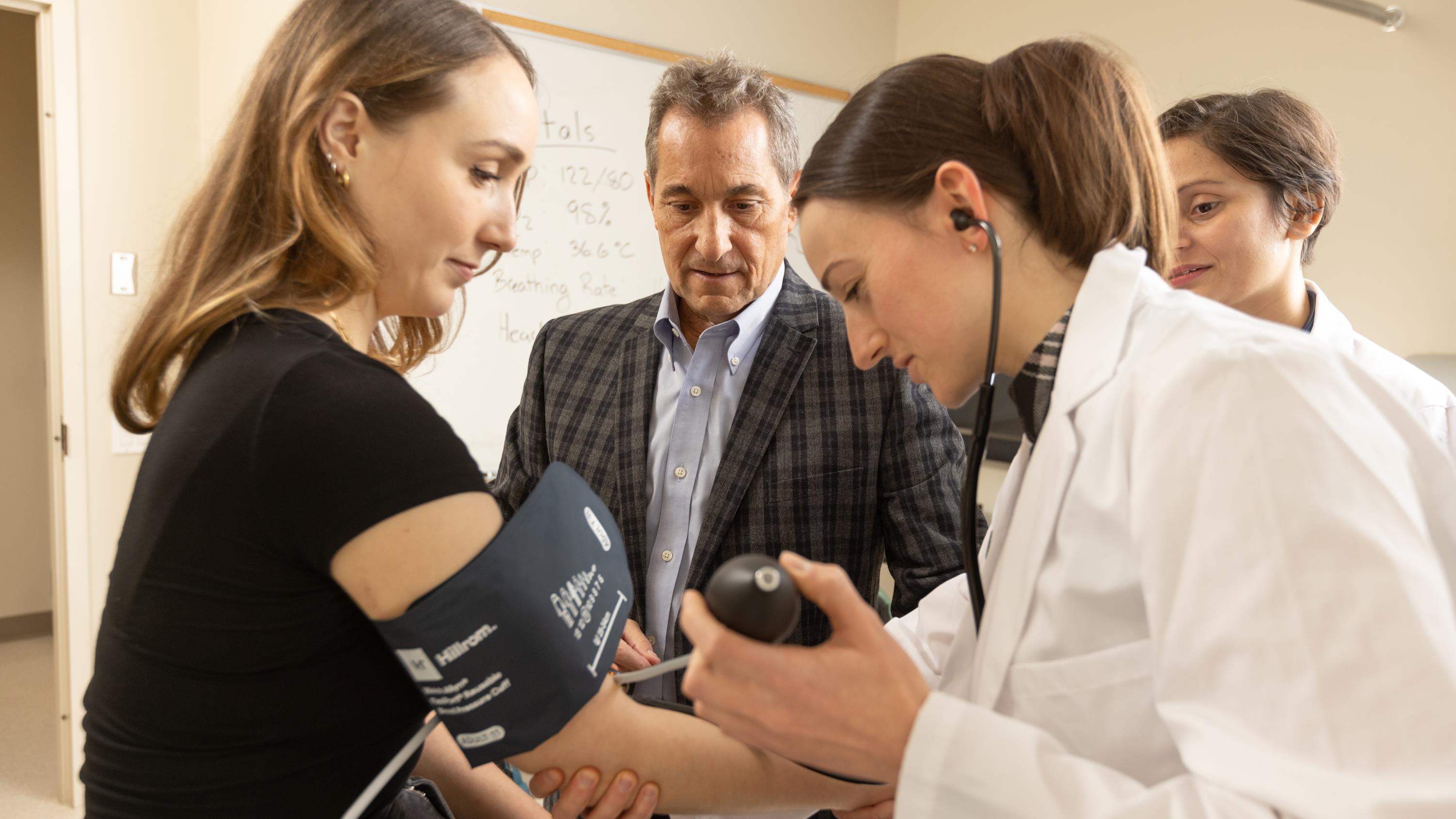Program Level Objectives

The MD Program develops diverse, competent, socially accountable and compassionate physician leaders who are prepared to serve the health needs of Alberta, northern communities and Canada. Achievement of this mission is supported by our Program Level Objectives (PLOs) which identify the key competencies of our graduating students. The PLOs give backbone to our entire curriculum and are mapped to course and session-level objectives.
Program level objectives posters
The overarching objective of the MD program is the graduation of physicians who are competent, to the satisfaction of the faculty and the standards of the profession, in the following areas:
Medical Expert
The medical graduate will:
- Conduct a complete history and physical exam targeted to a patient’s clinical situation.
- Generate a meaningful differential diagnosis and select appropriate therapy with emphasis on prioritization of common, chronic and urgent clinical presentations.
- Interpret common investigations.
- Demonstrate clinical decision-making skills that acknowledge patient values and principles of patient-centred care.
- Apply basic knowledge of the etiology, pathogenesis, clinical features, complications, principles of prevention and management with emphasis on common and life- threatening illnesses across the age spectrum.
- Demonstrate appropriate use of selected procedural skills.
- Apply information technology in patient care effectively.
Communicator
The medical graduate will:
- Demonstrate effective communication skills to develop a therapeutic relationship with diverse patients and families, including building trust and rapport, recognizing personal bias, and considering patients’ beliefs, values and cultures, especially in difficult situations.
- Apply principles of trauma-informed care and culturally safe principles to guide communication.
- Discuss disease management with patients and families, engaging patients in shared decision-making.
- Summarize clinical encounters in oral or written presentation in a clear, accurate, and timely manner.
Collaborator
The medical graduate will:
- Collaborate as part of the health-care team to support interdisciplinary care.
- Participate in respectful strategies that promote conflict resolution and negotiation in the context of the learning setting, patient care and/or team functioning.
- Reflect on, and provide feedback in an appropriate and timely manner in their learning and practice.
Leader
The medical graduate will:
- Describe the principles of effective leadership in the context of different roles.
- Summarize principles of quality improvement in health care.
- Apply principles of resource stewardship in patient care.
Scholar
The medical graduate will:
- Incorporate individual, interpersonal, familial, cultural, societal, and environmental determinants of health and illness across a diverse population into patient-centred care.
- Identify the priority health needs of the communities in which they serve.
- Apply principles of allyship, anti-racism and anti-oppression in advocating for individual patients as well as advocacy within the health-care system.
- Recognize patient safety issues and contribute to their resolution.
- Discuss health promotion and disease prevention with patients and families.
Health Advocate
The medical graduate will:
- Explain basic science and clinical research principles.
- Describe the scientific principles underlying evidence-informed approaches to health maintenance, preventive screening, therapeutic, rehabilitative, and palliative interventions.
- Demonstrate critical reflection and inquiry to adaptive practice and self-directed, life-long learning.
Professional
The medical graduate will:
- Exemplify appropriate professional behaviour (as defined by the CMA and CPSA Code of Ethics), including awareness of personal wellness and limitations.
- Evaluate priorities to achieve a balance of professional and personal commitments.
- Discuss ethical and legal principles as they apply to medical practice.